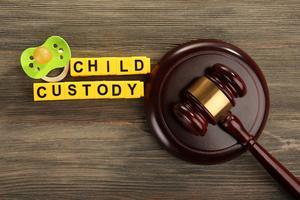630-462-9500
After Hour New Client Telephone Number 630-690-6077
1776 S. Naperville Road, Building B, Suite 202,
Wheaton, IL 60189
Recent Blog Posts
Four Surprising Things About Life After an Illinois Divorce
 So much of the content about the topic of divorce involves the period before and during the Illinois divorce process. Books, blogs, and TV series spend far more time focusing on the conflict of divorce and the difficulty of the process; the story often ends when each partner waltzes off into the sunset, newly and happily single.
So much of the content about the topic of divorce involves the period before and during the Illinois divorce process. Books, blogs, and TV series spend far more time focusing on the conflict of divorce and the difficulty of the process; the story often ends when each partner waltzes off into the sunset, newly and happily single.
As many divorcees can attest, however, the truth is more complicated and not quite so easy. Life after divorce can feel a bit like being suspended in midair. You still have the ongoing sense of urgency from the divorce - the feeling that tasks need to be done, the anticipation of something about to happen - but more time to yourself with far less to do. There is no longer a process, a plan. It can be hard to know what to do next. If you are getting divorced and are wondering what to expect about adjusting to life after the divorce is finalized, here are four things you will not often hear about life after divorce.
Life As You Knew it Has Changed
What Will I Have to Pay For During My Illinois Divorce?
 Unfortunately, there is no easy way to get around the average cost of divorce. While it may be possible for some spouses who own very few assets and who get along reasonably well to save money by filing for an uncontested divorce, most couples have numerous issues that take time and resources to negotiate. But although you may already know that divorce is likely to be expensive, you may not know exactly which expenses to anticipate. At The Stogsdill Law Firm, we believe that the more information you have about divorce, the better prepared you will be to manage yours. Here are the most important expenses we see our clients manage in their divorce.
Unfortunately, there is no easy way to get around the average cost of divorce. While it may be possible for some spouses who own very few assets and who get along reasonably well to save money by filing for an uncontested divorce, most couples have numerous issues that take time and resources to negotiate. But although you may already know that divorce is likely to be expensive, you may not know exactly which expenses to anticipate. At The Stogsdill Law Firm, we believe that the more information you have about divorce, the better prepared you will be to manage yours. Here are the most important expenses we see our clients manage in their divorce.
Filing Fees
While filing fees represent one of the less painful expenses of divorce, they can still cost several hundred dollars. Filing for divorce alone costs about 350 dollars in Illinois; court appearances, child support annual fees, parenting classes, and the cost of serving your spouse divorce papers can all add up to quite a lot. Avoid unpleasant surprises by speaking with your attorney about how much you can expect to pay in fees.
Can One Parent Get Sole Custody in Illinois?
 The vast majority of parents are committed to discovering their children's needs and wants on an ongoing basis and most parents spend many sleepless nights trying to help their children solve life's problems and learn the necessary lessons they need to succeed. Divorce can throw a major wrench into the process of raising a child, however; not only do you have to continue raising your child with your ex, but now there are strict, legally binding guidelines dictating how you will make decisions for your child and where they will spend their time.
The vast majority of parents are committed to discovering their children's needs and wants on an ongoing basis and most parents spend many sleepless nights trying to help their children solve life's problems and learn the necessary lessons they need to succeed. Divorce can throw a major wrench into the process of raising a child, however; not only do you have to continue raising your child with your ex, but now there are strict, legally binding guidelines dictating how you will make decisions for your child and where they will spend their time.
Some parents can manage this well together, even after divorce; some parents struggle to cooperate. But for some parents, there is an additional concern: What if the behavior of your child's other parent means they could be unsafe in that parent's care? Is it possible to get full custody of a child in Illinois if one parent is endangering the child? Read on to learn the answers to these questions.
Five Signs You Might Want to Hire a New Illinois Divorce Lawyer
 While nobody hopes to get divorced, sometimes a divorce is the inevitable outcome of a relationship that seems unfixable. Unfortunately, not every attorney has the skill, knowledge, or characteristics to give their clients the best experience possible. While divorce can take time and some minor delays, communication mishaps, or billing disputes may be inevitable, if you are seeing behavior from your attorney that makes you question whether they are legitimately capable of representing you, you may want to consider seeking someone new. Here are five signs that it may be time to find a new Illinois divorce lawyer.
While nobody hopes to get divorced, sometimes a divorce is the inevitable outcome of a relationship that seems unfixable. Unfortunately, not every attorney has the skill, knowledge, or characteristics to give their clients the best experience possible. While divorce can take time and some minor delays, communication mishaps, or billing disputes may be inevitable, if you are seeing behavior from your attorney that makes you question whether they are legitimately capable of representing you, you may want to consider seeking someone new. Here are five signs that it may be time to find a new Illinois divorce lawyer.
They Seem to Lack Experience or Knowledge of the Law
Sometimes attorneys fresh out of law school can provide clients with outstanding representation; other times, it takes them a few years to cut their teeth. If your attorney cannot answer basic questions, makes mistakes in front of a judge about the application of the law, or generally seems confused about which steps to take next, he or she may not have the experience necessary to provide great services.
What is the Waiting Period for Divorce in Illinois?
 By the time an individual or couple decides to get divorced, the relationship has often been over for quite a long time. The decision to get divorced can, therefore, feel like it has a sense of urgency and even couples who are still on good terms usually want to get the process over and done with as soon as possible. If you are a resident of Illinois seeking divorce, you likely have some questions. Is there a waiting period before divorce? And what does the divorce process look like? Read on to find out - then contact a knowledgeable Illinois divorce lawyer to get more detailed answers to your questions.
By the time an individual or couple decides to get divorced, the relationship has often been over for quite a long time. The decision to get divorced can, therefore, feel like it has a sense of urgency and even couples who are still on good terms usually want to get the process over and done with as soon as possible. If you are a resident of Illinois seeking divorce, you likely have some questions. Is there a waiting period before divorce? And what does the divorce process look like? Read on to find out - then contact a knowledgeable Illinois divorce lawyer to get more detailed answers to your questions.
Illinois Has No Mandatory Waiting Period For Uncontested Divorce
Some states have a minimum waiting period before divorce to give couples a chance to cool down and consider the implications of a permanent separation more carefully. However, in Illinois, there is no waiting period before the process can start - that is, as long as both parties agree to get divorced.
Can My Spouse Move Our Children Overseas After Our Divorce?
 International travel, global business operations, and wide-scale inward and outward migration mean that, more than ever, couples in Illinois are often made up of one American spouse and one foreign-born spouse. While this may be very romantic in the early stages of a relationship, it can introduce major complications during and after divorce.
International travel, global business operations, and wide-scale inward and outward migration mean that, more than ever, couples in Illinois are often made up of one American spouse and one foreign-born spouse. While this may be very romantic in the early stages of a relationship, it can introduce major complications during and after divorce.
If one parent moved to the United States from another country, he or she may want to return to their country of origin following a divorce. Parents who do this rarely want to leave their children behind. Unfortunately, this creates a situation where nobody ends up happy: The parent from Illinois does not want their children relocated outside the country, while the parent who is not from the U.S. may not have anything tying them to Illinois besides their former spouse. This can lead to ugly and protracted custody disputes over relocation, and, in worse case scenarios, sometimes the spouse from outside the U.S. will try to leave without permission and take the children.
How Can I Get Divorced If I Live in Illinois and My Spouse Lives in A Different State?
 Sometimes divorce is the inevitable end of a relationship and while you may be reconciled to the breakdown of your marriage, certain factors can make getting a divorce more complex. One of these is when a spouse lives in another state or cannot be located. You may be wondering whether it is possible to divorce someone who lives outside of Illinois, or whether you can get divorced at all if you do not know where your spouse is. In this blog, we will answer questions about interstate divorce and divorce by publication. Keep in mind that the only person who can give you legal advice tailored to your situation is an Illinois divorce attorney.
Sometimes divorce is the inevitable end of a relationship and while you may be reconciled to the breakdown of your marriage, certain factors can make getting a divorce more complex. One of these is when a spouse lives in another state or cannot be located. You may be wondering whether it is possible to divorce someone who lives outside of Illinois, or whether you can get divorced at all if you do not know where your spouse is. In this blog, we will answer questions about interstate divorce and divorce by publication. Keep in mind that the only person who can give you legal advice tailored to your situation is an Illinois divorce attorney.
Can I Divorce Someone Who Lives Outside of Illinois?
If you have lived in Illinois for at least 90 days, you qualify for Illinois residency and can file for divorce in Illinois even if your spouse lives outside of Illinois. If you share children, you may need to live in Illinois for at least six months before you can file for divorce which will decide on parental responsibilities and parenting time.
Can I Appeal a DuPage County Child Support Order?
 Most parents would agree that child support is important for raising children and ensuring they have what they need. However, not all parents agree on the amount or duration of child support payments set by an Illinois court, which may seem arbitrary and unfair. This is especially true for parents who were never married and with whom the child did not share a specific standard of living before a divorce.
Most parents would agree that child support is important for raising children and ensuring they have what they need. However, not all parents agree on the amount or duration of child support payments set by an Illinois court, which may seem arbitrary and unfair. This is especially true for parents who were never married and with whom the child did not share a specific standard of living before a divorce.
While child support payments are ostensibly based on both parents' incomes and the time they spend with the child, courts can make mistakes, parents can lie about their income, and other factors - such as pre-existing child support or spousal support orders - can make a new order untenable for the paying parent. If you want to appeal your child support order, whether you are sending or receiving payments, read on.
Successful Child Support Order Appeals Are Possible, But Rare
Courts want to discourage parents from constantly bringing new cases for modification to harass each other. Therefore, courts will generally only reverse a child support order in unusual circumstances and usually only if an appeal is made within 30 days of the original ruling. These circumstances include:
Three Reasons Not to Represent Yourself in Your DuPage County Divorce
 Couples getting divorced in Illinois face many obstacles and the idea of self-representation throughout the divorce may seem sensible for many reasons. After all, divorce has a reputation for being expensive and time-consuming, and if you can do the relevant research and problem-solve proactively with your spouse, why not just do the legal legwork yourself? Yet even for the most straightforward-seeming divorces, potential complications abound and representing yourself could end up costing you far more time and money than you expect. Here are three good reasons not to represent yourself in your DuPage County Divorce.
Couples getting divorced in Illinois face many obstacles and the idea of self-representation throughout the divorce may seem sensible for many reasons. After all, divorce has a reputation for being expensive and time-consuming, and if you can do the relevant research and problem-solve proactively with your spouse, why not just do the legal legwork yourself? Yet even for the most straightforward-seeming divorces, potential complications abound and representing yourself could end up costing you far more time and money than you expect. Here are three good reasons not to represent yourself in your DuPage County Divorce.
Get Answers to Your Questions and Legal Advice
While you can get the necessary divorce paperwork yourself and find the information you need to fill it out online, when you have questions about interpreting the law, answers can be very difficult to find. Divorce law is sometimes equal parts science and magic, making case law and precedent difficult to understand. Additionally, certain judges have a reputation for ruling in certain ways that could be beneficial or harmful to your case and without an experienced attorney, you will have no way of knowing whether a judge is likely to rule in your favor or approve your divorce agreement. Having an attorney can solve all of these problems and provide on-demand legal assistance whenever necessary.
Do I Have to Pay Taxes on the Alimony and Child Support I Receive?
 Divorce can bring significant changes to your finances. Some of these changes - like living with just one income instead of two - are easy to understand, while others may require professional help to prepare for. Those seeking divorce in Illinois frequently wonder whether spousal support and child support are taxable income or tax-deductible. Whether you are paying or receiving support, it is important to understand how these payments are taxed.
Divorce can bring significant changes to your finances. Some of these changes - like living with just one income instead of two - are easy to understand, while others may require professional help to prepare for. Those seeking divorce in Illinois frequently wonder whether spousal support and child support are taxable income or tax-deductible. Whether you are paying or receiving support, it is important to understand how these payments are taxed.
Is Child Support Taxable Income?
Child support is considered “tax neutral,” meaning it is neither taxable income nor tax-deductible. The parent who is receiving child support does not pay taxes on those payments, and the parent who pays child support cannot deduct the payments from their taxable income. This is because even if parents were not divorced, they would be paying for their children's needs with their income after taxes are already paid. The only difference is that instead of buying things for your child yourself, you are giving the money to your ex.




















